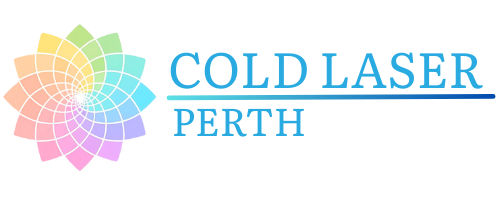

Nocturnal enuresis, commonly known as bedwetting, refers to involuntary urination during sleep, typically after the age when bladder control is expected. While it's more common in children, it can persist into adolescence or even adulthood, affecting self-esteem, sleep quality, and family life.
Though often considered a normal developmental stage, persistent enuresis may point to an underlying issue with bladder function or nervous system regulation. Many families seek alternative, non-invasive solutions when conventional treatments such as alarms or medication are ineffective or not preferred.
Signs and Symptoms of Nocturnal Enuresis
- Involuntary urination during sleep (at least twice a week for three months in children over 5 years old)
- Difficulty waking during the night to use the bathroom
- History of delayed toilet training or daytime incontinence
- Possible family history of enuresis
- In some cases, signs of constipation or underlying bladder dysfunction
Cold Laser Therapy and Nocturnal Enuresis
Cold laser therapy—also known as low-level laser therapy (LLLT)—is a non-invasive treatment that uses light to stimulate healing and improve cellular function. At Cold Laser Perth, located inside Lakeside Chiropractic, we use the MR5 ACTIV PRO LaserStim® device to deliver advanced cold laser therapy safely and precisely.
How Cold Laser Therapy May Help with Bedwetting
🔬 Neuromodulation and Nervous System Balance
Cold laser therapy may help regulate the nervous system by stimulating peripheral nerves and modulating nerve signals. It has been explored for its effects on the autonomic nervous system, which controls bladder function during sleep. A single-blind randomized controlled trial reported that LLLT may influence neurophysiological processes that support bladder control.
💡 Stimulation of Sacral Nerve Pathways
Laser therapy can be applied over the sacral region (S2–S4)—areas associated with bladder control. A study using laser at sacral points showed promising results in children with primary enuresis, reducing the frequency of bedwetting episodes.
🔄 Improved Sleep and Parasympathetic Tone
Research also have shown that LLLT may promote parasympathetic activity and reduce stress responses, which may indirectly support better bladder control during sleep. An overactive sympathetic nervous system can interfere with deep sleep and bladder relaxation, contributing to enuresis.
🌿 Non-Invasive and Gentle
Cold laser therapy is painless, has no downtime, and is well-tolerated by children and adults. It may be particularly helpful for those looking for a natural approach without medication or alarms.
How Chiropractic Care May Help

Chiropractors assess and address potential spinal or nervous system dysfunctions that may contribute to nocturnal enuresis. The lower spine, particularly the sacral region (which influences bladder and bowel control), is of particular interest. Chiropractic care may involve:
- Gentle spinal adjustments to the lumbar and sacral spine
- Postural assessments and advice
- Supporting pelvic floor function through movement education
- Recommending exercises and behavioural strategies
Some case reports and observational studies suggest improvements in bedwetting following chiropractic treatment. However, results vary, and more robust clinical trials are needed to confirm its efficacy.
A Holistic Approach at Cold Laser Perth
At Cold Laser Perth, we use a tailored approach to each case of nocturnal enuresis. Depending on the assessment, we may combine:
- Cold laser therapy over the sacral region
- Gentle chiropractic care to support spinal and neurological function
- Lifestyle, hydration, and sleep hygiene recommendations
While outcomes can vary, many patients find this multi-modal approach helps improve bladder control and sleep quality over time. If your child or teen is struggling with bedwetting and you're looking for natural, supportive solutions, contact Cold Laser Perth at Lakeside Chiropractic at 9300 0095 to see how we may be able to help or visit our website at www.coldlaserperth.com.au for more information.
📍 Serving the Joondalup & Northern Suburbs of Perth Lakeside Chiropractic is central to the northern suburbs of Perth, located in the City of Joondalup.
If you are in the surrounding suburbs such as Yanchep - 6035, Tapping - 6065, Carramar - 6031, Currambine - 6028, Wanneroo - 6065, Heathridge - 6027, Edgewater - 6027, Gnangara - 6077, Mullaloo - 6027, Padbury - 6025, Kingsley - 6026, Woodvale - 6026, Banksia Grove - 6031, or Duncraig - 6023, our team is here to assist you.
References:
1. Abstract from ICS (2023)
International Continence Society. (2023). Low reactive-level laser therapy (LLLT) for overactive bladder. Presented at the ICS Annual Meeting 2023. https://www.ics.org/2023/abstract/233
2. Karaman et al. (2011)
Karaman, M. I., Koca, O., Küçük, E. V., & Öztürk, M. (2011). Laser acupuncture therapy for primary monosymptomatic nocturnal enuresis. Journal of Urology, 186(2), 648–651. https://pubmed.ncbi.nlm.nih.gov/21420121/
3. Ali et al. (2022)
Ali, M. K., Saha, S., Milkova, N., Liu, L., Sharma, K., Huizinga, J. D., & Chen, J. H. (2022). Modulation of the autonomic nervous system by one session of spinal low-level laser therapy in patients with chronic colonic motility dysfunction. Frontiers in Neuroscience, 16, 947724. https://www.ncbi.nlm.nih.gov/pmc/articles/PMC9477245/
Disclaimer: This blog is for informational purposes only and does not replace professional medical advice, diagnosis, or treatment. Individual results may vary.




